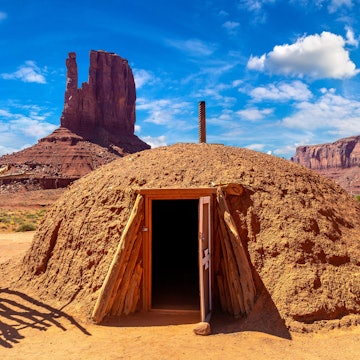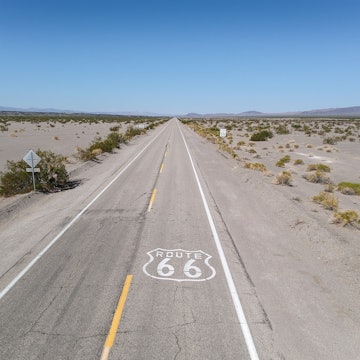

Sedona is a great base to explore the Grand Canyon ©Stephen Moehle/500px
Anchored in a sea of red rock, Sedona is both a consciousness-expanding energetic supersite and the adventure capital of the Southwest. Sedona sits in the middle of red rock buttes and monoliths peppered with ancient juniper trees. Whether you’re intrigued by a full-moon djembe circle, thrilling mountain bike single track, an off-road rock crawling tour in Sedona’s famous pink jeeps, authentic southwestern cuisine, or galleries featuring the region’s most-prized art, you’ll find it in Sedona.
Sedona is also the best base to explore Northern Arizona. The once-remote ranching settlement is now surrounded by the Coconino National Forest, and it’s the jumping-off place for tours of the Red Rocks region in every direction.
Editor's note: during COVID-19 there may be additional travel restrictions. Check the latest guidance in Arizona before planning a trip, and always follow local government health advice.
Grand Canyon
A hundred miles south of Sedona lies the Grand Canyon, one of the natural wonders of the world. Get there from Sedona by train, car, or air. Exploring the Grand Canyon is taking a trip through millions of years of geological history, one layered band of red rock at a time. Visit the park's most captivating viewpoints, like Mather Point, Yavapai Observation Station, and architect Mary Colter’s Lookout Studio or her Desert View Watchtower. If you’re strong and adventurous, take a hike to Bright Angel Falls at the canyon bottom. Catch sunrise or sunset at Lipan Point, which has broad views of the canyon and the Colorado River, which has sliced through the Arizona desert to create the canyon, which is a mile-deep and up to 18 miles-wide.
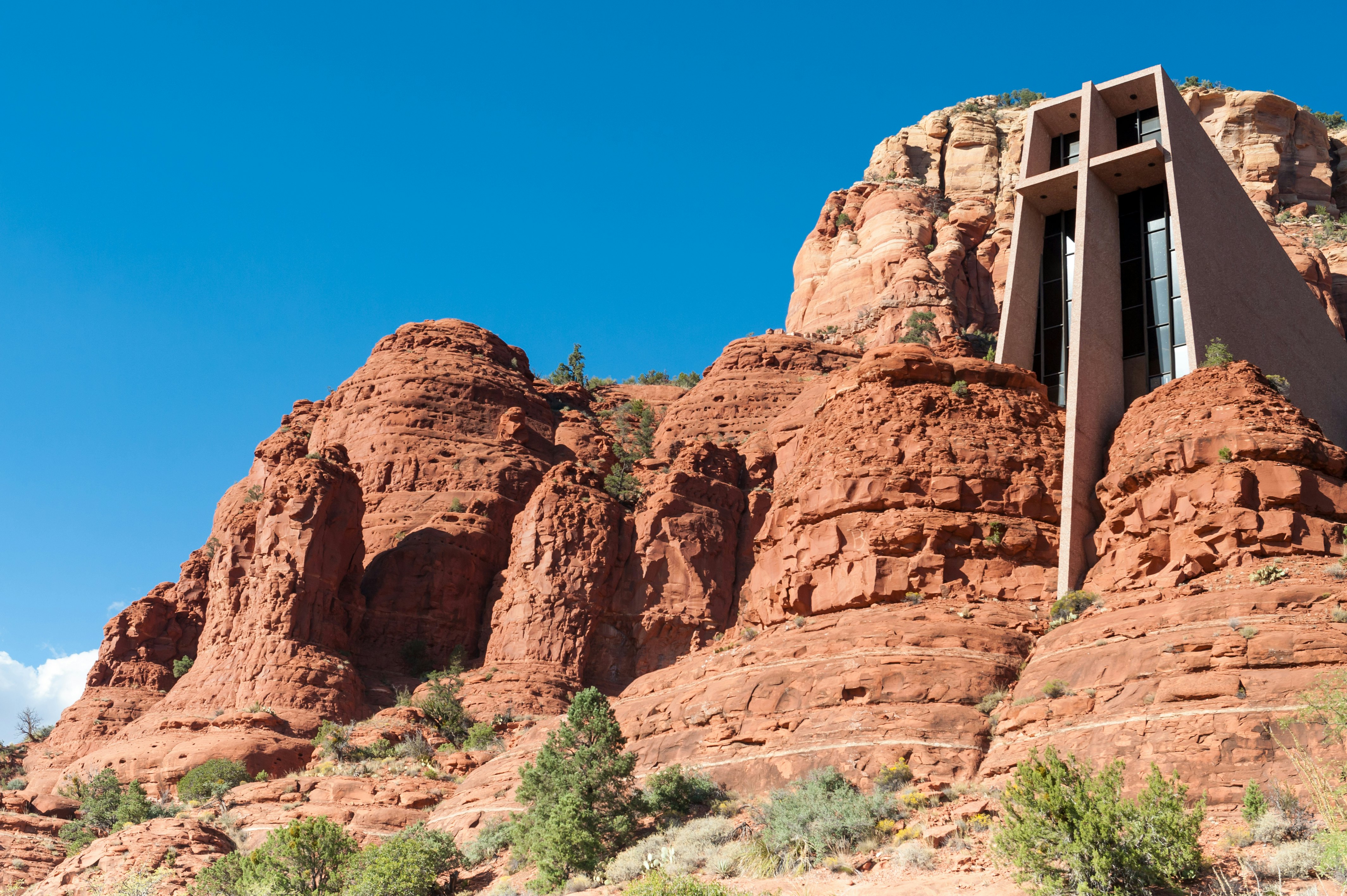
Mogollon Rim
A craggy escarpment that marks the southern end of the Colorado Plateau, standing on top of Mogollon Rim gives you a birds-eye panoramic view of Arizona that stretches to Phoenix. The Mogollon Rim meanders 200 miles from Yavapai County, Arizona to New Mexico. Two thousand feet down off the plateau edge, a dense pine forest stretches towards the horizon. The plateau itself is a visually-captivating swirl of sedimentary, volcanic, and metamorphic rock dating back to the Precambrian era. Come for a picnic, a hike, or a horseback ride on the historic trails. You can also hunt, rock climb, cycle, boat, birdwatch, and just enjoy the scenery here. The Rim has ten trout-stocked lakes. And if you want to spend the night, rent a cabin or book a campsite right on the rim. In winter, many also come for the backcountry skiing.

Jerome, AZ
Once the largest copper mine in Arizona, Jerome was a mining settlement that grew into a city called the wickedest town in the west. Now, Central Arizona’s Jerome, which is about 45 minutes driving from Sedona, is a designated National Historic District. Today, visitors come for a glimpse into the town’s storied past, literally. At Audrey Headframe Park, you can peer deep into a 1918 mine shaft through a glass viewing-platform. Learn Jerome’s colorful history at the Mine Museum. In Jerome State Historic Park, tour Douglas Mansion, which was built by a mining magnate in 1916. In modern-day Jerome, miners, gamblers, and swinging-door taverns have been replaced by artists, musicians, and gift-shop proprietors. And instead of being the wickedest town in the west, Jerome is the largest ghost town in America, with a population of 450, and an economy dependent on art galleries and local wineries.

Flagstaff, AZ
Called the City of Seven Wonders, Flagstaff is perched at 7000 feet in the high desert, and surrounded by mountains, desert, and towering ponderosa pine forests. It's the closest city to Grand Canyon National Park, teeming with a relaxed mountain culture that beckons adventurers and athletes from all over the world with its vibrant alpine setting, cool weather, and chill lifestyle. US Olympic teams and elite athletes come to “Flagg, as it’s called by locals, to train and recreate in the seven wonders, which are Coconino National Forest, Grand Canyon, Oak Creek Canyon, San Francisco Peaks, Sunset Crater, Walnut Canyon, and Wupatki National Monument. Amateur stargazers and celestial scientists also flock to Flagg for its light-pollution-free skies. Downtown has a hippie laid-back feel with coffee shops, live music, and a strong localvore movement. Grab a craft brew, sit down for a set of folk or indie rock, or sample the local meats, produce and brew at one of the chill downtown eateries. Flagstaff is very family-friendly. And it’s pet-friendly too. Flagstaff is about 45 minutes from Sedona off AZ 89A N.
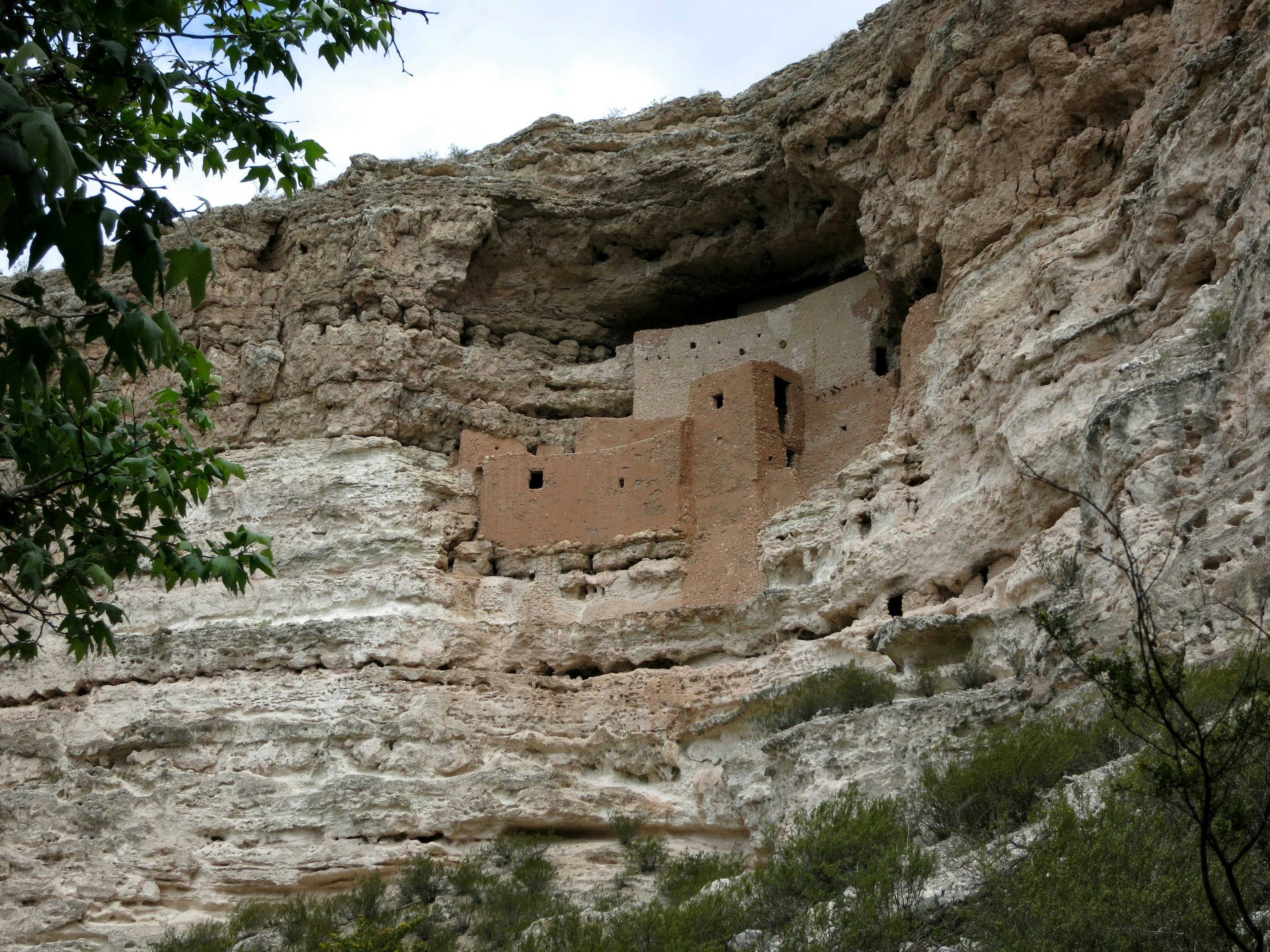
Montezuma Castle National Monument
Forty minutes from Sedona, the 1000-year-old, 40-story complex of pre-Columbian dwellings inhabited by the Sinagua people around 1100 to 1425 AD, welcomes visitors. The monument, which is dedicated to preserving Native American culture, includes the well-preserved castle. See the stone-and-mortar wonder of architectural engineering from trails that wind along the base of the dwelling through a Sycamore forest, explore the monument museum, enjoy the self-guided loop trail, or take a 25-minute ranger-led tour that’s great for the whole family. Experts believe the castle was built over three centuries and that it was used for shelter during the flood season. The monument has multiple trails. Another loop visits an oasis used by the Sinagua people over 600 years ago. Entry is free for kids 16 and under, which makes it an extremely affordable stop.
Verde Canyon Railroad
All aboard! One of the best family trips from Sedona, the Verde Canon Railroad lets you and your family hop aboard the railroad’s meticulously-refurbished cars for a four-hour journey through history and geology. You’ll experience awe-inspiring scenery from the train’s climate-controlled cars, with the chance to get up close and personal with the surroundings through picture windows and open-air cars. The 40-mile round-trip takes place aboard a ¼ mile-long renovated vintage train powered by an FP7 diesel locomotive, one of only ten left in North America. Built in 1953 for the Alaska Railroad, the locomotive came to Arizona in 1917, then got spruced up in 2019 with an American Bald Eagle motif. It’s appropriate because this train has three regular American Bald Eagle passengers through Liberty Wildlife. With their volunteer handlers, they delight kids and adults alike and are always available for photo ops. The journey is narrated for interested parties. There’s also a soundtrack of classic railroad tunes available for your enjoyment. And one lucky person a day gets to ride in the locomotive with the train’s engineer and conductor. Make reservations at verdecanyonrr.com or 800.293.7245.
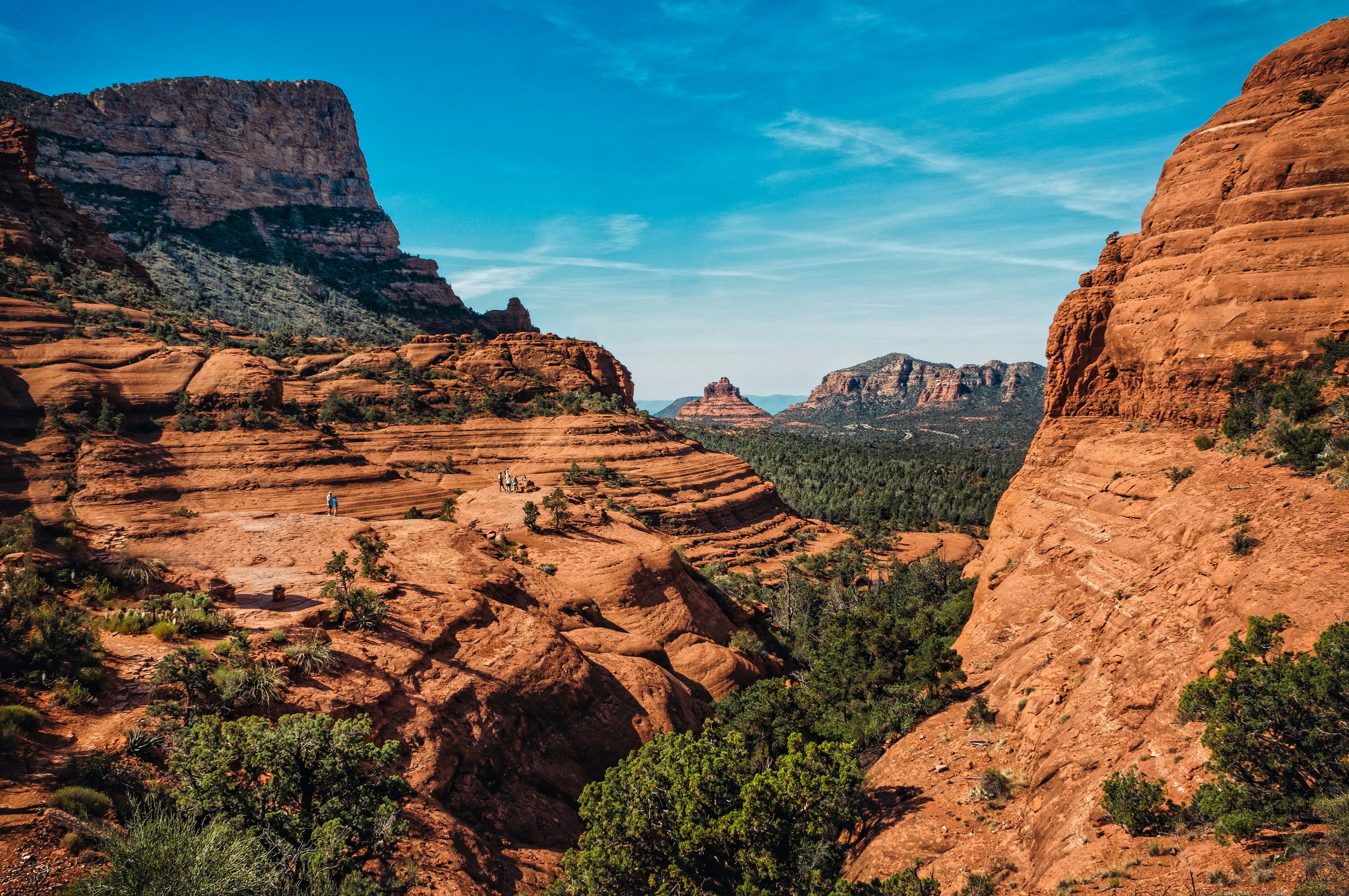
Verde Valley
Sip exquisite local varietals from Arizona’s up-and-coming wine region, take a trip on the historic Verde Canyon Railroad, or float the Verde River. Smack dab in the geographical center of Arizona, the 714 square-mile Verde Valley follows snaking Verde River, one of Arizona’s last free-flowing river systems. The lush valley, which provides the drinking water for all of Phoenix, is especially vibrant in autumn when the cottonwoods flutter yellow in the breeze. That’s also when the apples are ripe in Slide Rock State Park’s orchard. The 286-acre nature preserve also has meadows, trails, and views of Sedona’s signature towering rock formations. Across the river, you can lose yourself in nature at Dead Horse Ranch State Park on its 20 miles of multi-use trails or the banks of its three lagoons. Ditch your car and go for a float on the Verde River. Multiple operators offer canoe, kayak, and paddleboard tours. Cast a line from shore, and if you’re lucky you’ll land a rainbow trout, large-mouth bass, crayfish, or other panfish. Movie buffs may recognize Verde Valley. It was the setting for William Shatner’s 1977 sci-fi thriller cult classic, Kingdom of the Spiders.
You might also like:
Tired of forest bathing? This spa is offering canyon bathing
More visitors will be allowed to trek the Wave in Arizona
The best of Arizona beyond the Grand Canyon













